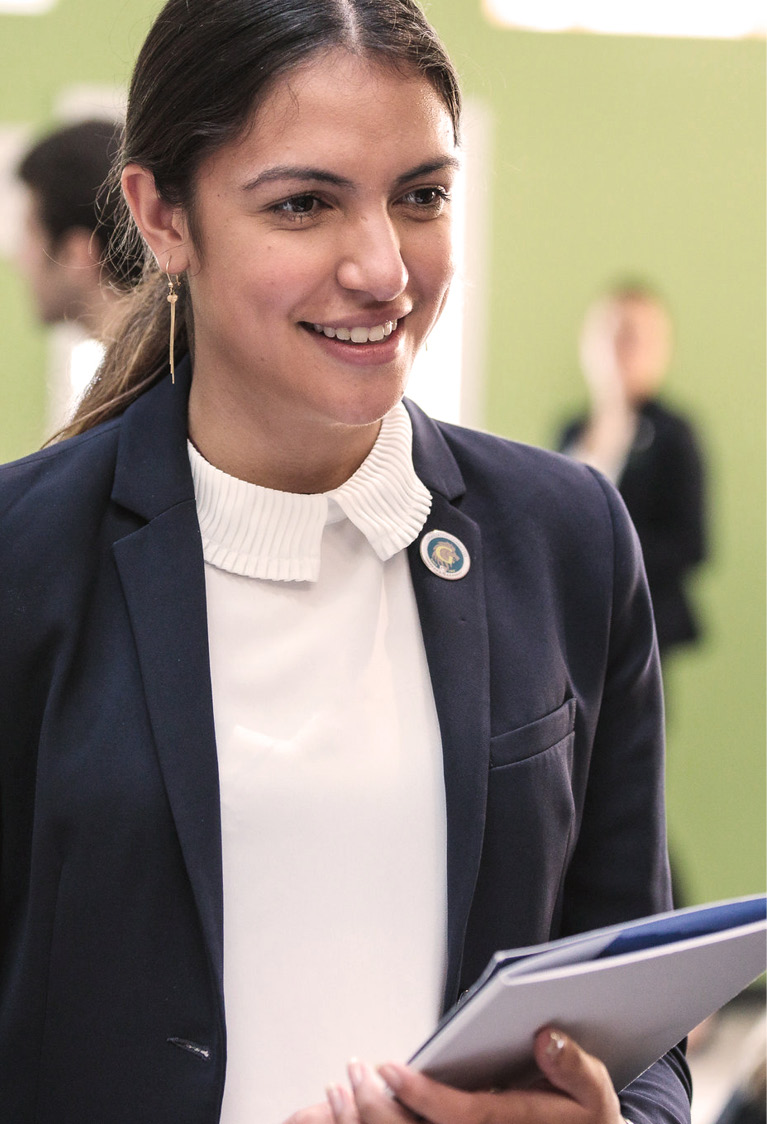


We recently spoke with our Senior Lecturer, Dr Martin Senior, about transformative education as it relates to his classes at Glion. Now we turn our eyes to the bigger picture: what is transformative education?
Transformative education, or transformative learning, is a concept that has been around for a few decades now. It can trace its origins to Jack Mezirow, an American professor widely credited with revolutionizing adult learning through his theories.
Transformative learning has found its home in the higher education sector. It’s designed to give learners the ability to think autonomously, i.e. as individuals prepared to question the status quo. Why is this important? Because it encourages moral decision-making, critical thinking and soft skills such as problem-solving – all highly valued in the professional workplace.
The ethos of transformative education sits at the heart of our progressive learning principles. It’s essential to a developmental journey that turns a promising student into a graduate with a bright outlook for their future.
That journey brings together a number of key elements, with each playing a pivotal part in our students’ personal growth. Many of these elements – for example, self-examination, critical assessment, testing knowledge and building confidence in new roles and relationships – are all taken straight from the transformative education ‘playbook’.
In particular, as they acquire new knowledge, students are encouraged to explore their own understanding with their peers in an environment that supports collective development. This is made possible through our close-knit campuses and deliberately small class sizes, which enable the sort of personalized teaching approach that is vital to successful transformative learning.
Here are five other ways that the principles of transformative education have found their place within our curricula and teaching:
1. Intercultural fluency, with a focus on self-examination
Those who desire to pursue a career within the hospitality or luxury sectors must be able to relate to people from all nations and all cultures. So, at Glion, we’ve always seen the value of establishing a strong ethos of multiculturalism across all our campuses. At any given time, we have around 90 nationalities represented among our student body, and time and again our students tell us this is one of the things they like most about studying with us.
Classes at Glion are structured to make the process of self-examination less daunting, with no more than 35 students per class. This allows the type of personalized support and feedback that is crucial to a student’s development.
2. A focus on Practical Arts
Practical Arts are essential to the ‘transformative’ Swiss model of hospitality education, offering students hands-on experiences in key areas of restaurant and hotel operations. We put students on-the-spot in authentic hospitality/F&B situations, with smaller Practical Arts class sizes of only 15 students providing the opportunity for intensive, applied learning that gets the best from them.
Our students also study contemporary case studies with leading industry partners, as well as completing applied business projects, providing the ideal platform for showcasing the skills needed to excel in a career within hospitality management.
3. Professional internships
A major part of transformative education is having the ability to apply knowledge in different and unpredictable circumstances. The professional internships that are core elements of our programs deliver this and much more: they are essential to gaining the ‘real world’ industry experience needed to be ready for career success in the future.
The internship experience goes well beyond the classroom; into a professional environment that challenges students to build on lessons learned during their studies. Their internships provide daily situations that require students to work autonomously, as well as alongside fellow colleagues, to achieve specific goals.
Each of our students receives seven internship offers on average, and we offer dedicated support throughout the process of selecting, applying for and undertaking the internship. Moreover, our world-class reputation means offers come in from industry-leading companies located in more than 60 countries throughout the world.
4. Development of soft skills
Developing soft skills is crucial for anyone harboring leadership ambitions; and so our students benefit from an atmosphere that encourages improvement in this key area. For example, Glion alumnus Paulo Barcia, Sales Manager at Le Richemond, says that his Glion education was imperative to learning how to manage effectively.
Our programs constantly evolve to keep students stimulated; with new opportunities to build leadership, problem-solving and presentation skills in addition to the self-confidence that comes from sharing experiences and collaborating with fellow students. Proficiency in leadership and management is something the top employers are searching for in graduates. We leverage our expertise in this area to embed insights into effective leadership within all our programs.
5. Employability: a twin focus on classroom and extracurricular activities
High employability is a key ‘return on investment’ from a Glion education. At the last count, 98% of our students had one or more job offers upon graduation.
We build employability through two areas. The first is centered on the classroom, where the bedrock for self-exploration and development is laid. Recent Glion graduate, Yiqian Hu, valued her time in class and the profound impact it had. “The most important things I learned at Glion were the professional skills and industry insight,” she says. “I was inspired with Glion Spirit on my self-exploration journey, and now willing to take chances and be open to all opportunities.”
The second element relates to the wealth of extracurricular activities that are available on campus. Students are encouraged to explore their interests beyond the classroom, which provide an ideal opportunity for developing leadership skills and furthering employability prospects.

















